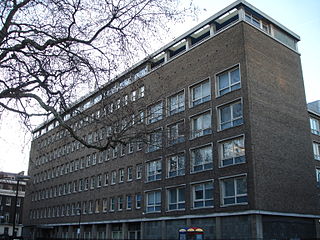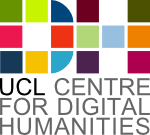Cambridge University Press & Assessment is a department of the University of Cambridge. It is both a global academic and educational publisher as well as a leading provider of educational assessments. As a publisher, it has a global sales presence, publishing hubs, and offices in more than 40 countries. It publishes over 50,000 titles by authors from over 100 countries. Its publishing includes more than 380 academic journals, monographs, reference works, school and university textbooks, and English language teaching and learning publications. As a provider of educational assessment, it serves over 8 million learners in over 170 countries. It manages several assessment organisations: Oxford, Cambridge and RSA Examinations (OCR), Cambridge Assessment International Education, Cambridge Assessment Admissions Testing, and Cambridge Assessment English for learners of the English language.

Peter John Ucko FRAI FSA was an influential English archaeologist. He served as Director of the Institute of Archaeology at University College London (UCL), and was a Fellow of both the Royal Anthropological Institute and the Society of Antiquaries. A controversial and divisive figure within archaeology, his life's work focused on eroding western dominance by broadening archaeological participation to developing countries and indigenous communities.

Visual anthropology is a subfield of social anthropology that is concerned, in part, with the study and production of ethnographic photography, film and, since the mid-1990s, new media. More recently it has been used by historians of science and visual culture. Although sometimes wrongly conflated with ethnographic film, Visual Anthropology encompasses much more, including the anthropological study of all visual representations such as dance and other kinds of performance, museums and archiving, all visual arts, and the production and reception of mass media. Histories and analyses of representations from many cultures are part of Visual Anthropology: research topics include sandpaintings, tattoos, sculptures and reliefs, cave paintings, scrimshaw, jewelry, hieroglyphics, paintings and photographs. Also within the province of the subfield are studies of human vision, properties of media, the relationship of visual form and function, and applied, collaborative uses of visual representations. Multimodal anthropology describes the latest turn in the subfield, which considers how emerging technologies like immersive virtual reality, augmented reality, mobile apps, social networking, gaming along with film, photography and art is reshaping anthropological research, practice and teaching.

UCL's Institute of Archaeology is an academic department of the Social & Historical Sciences Faculty of University College London (UCL) which it joined in 1986 having previously been a school of the University of London. It is currently one of the largest centres for the study of archaeology, cultural heritage and museum studies in the world, with over 100 members of staff and 600 students housed in a 1950s building on the north side of Gordon Square in the Bloomsbury area of Central London.
Digital anthropology is the anthropological study of the relationship between humans and digital-era technology. The field is new, and thus has a variety of names with a variety of emphases. These include techno-anthropology, digital ethnography, cyberanthropology, and virtual anthropology.
Development anthropology refers to the application of anthropological perspectives to the multidisciplinary branch of development studies. It takes international development and international aid as primary objects. In this branch of anthropology, the term development refers to the social action made by different agents who are trying to modify the economic, technical, political, or/and social life of a given place in the world, especially in impoverished, formerly colonized regions.
Daniel Miller is an anthropologist who is closely associated with studies of human relationships to things, the consequences of consumption and digital anthropology. His theoretical work was first developed in Material Culture and Mass Consumption and is summarised more recently in his book Stuff. This is concerned to transcend the usual dualism between subject and object and to study how social relations are created through consumption as an activity.
Alan Donald James Macfarlane is an anthropologist and historian, and a Professor Emeritus of King's College, Cambridge. He is the author or editor of 20 books and numerous articles on the anthropology and history of England, Nepal, Japan and China. He has focused on comparative study of the origins and nature of the modern world. In recent years he has become increasingly interested in the use of visual material in teaching and research. He is a Fellow of the British Academy and the Royal Historical Society.

InVesalius is a free medical software used to generate virtual reconstructions of structures in the human body. Based on two-dimensional images, acquired using computed tomography or magnetic resonance imaging equipment, the software generates virtual three-dimensional models correspondent to anatomical parts of the human body. After constructing three-dimensional DICOM images, the software allows the generation of STL (stereolithography) files. These files can be used for rapid prototyping.
Nur Yalman is a leading Turkish social anthropologist at Harvard University, where he serves as senior Research Professor of Social Anthropology and Middle Eastern Studies.

The Anna Freud Centre is a child mental health research, training and treatment centre located in London, United Kingdom. The Centre aims to transform current mental health provision in the UK by improving the quality, accessibility and effectiveness of treatment, bringing together leaders in neuroscience, mental health, social care and education. It is closely associated with University College London (UCL) and Yale University. The Duchess of Cambridge currently serves as its royal patron.

Heritage science is the interdisciplinary domain of scientific study of heritage. Heritage science draws on diverse humanities, sciences and engineering disciplines. It focuses on enhancing the understanding, care and sustainable use of heritage so it can enrich people's lives, both today and in the future. Heritage science is an umbrella term encompassing all forms of scientific enquiry into human works and the combined works of nature and humans, of value to people.

The UCL Centre for Digital Humanities is a cross-faculty research centre of University College London. It brings together digital humanities work being done in many of the university's different departments and centres, including the library services, museums and collections. The Centre counts among the "most visible" in the field and facilitates various opportunities for study at post-graduate level, including the MA/MSc in Digital Humanities, doctoral study, and short courses as part of the Department of Information Studies.
The UCL Faculty of Social and Historical Sciences is one of the 11 constituent faculties of University College London (UCL). The current Executive Dean of the Faculty is Professor Sasha Roseneil, having been appointed from September 2018.
The Center for Global Communication Studies (CGCS) is a research center located within the Annenberg School for Communication at the University of Pennsylvania. CGCS serves as a research hub for students and scholars worldwide studying comparative communication studies, media law, and media policy. The center also provides consulting and advisory assistance to academic centers, non-governmental organizations, regulators, lawyers, and governments throughout the world.
Bjørn Thomassen is an anthropologist and social scientist. He is associate professor at Roskilde University in the Department of Society and Globalisation. From 2003-2012 he worked at The American University of Rome where he was Chair of the department of International Relations.
Lucy Green is an Emerita Professor of Music Education at the UCL Institute of Education, UK. She had a key role in bringing the informal learning practices of popular and other vernacular musicians to the attention of music-educators, thus transforming classroom practice.
Elizabeth "Dori" Tunstall is a design anthropologist, researcher, academic leader, writer, and educator. She is Dean, Faculty of Design at OCAD University in Toronto, Canada and the first black Dean of a Faculty of Design anywhere. Tunstall holds a PhD and an MA in Anthropology from Stanford University [1994–1999] and a BA in Anthropology from Bryn Mawr College [1990–1994]. She is interested in human values and design as a manifestation of those values. Tunstall observes that design translates values into tangible experiences and asks others to consider what their values are. In a Design Matters interview with Debbie Millman, Tunstall describes some of the motivations underlying her research and practice. She is trying to use design and design technologies to make values more tangible and apparent to people and believes that design is not all about mass consumption and unbridled capitalism. She suggests values like equality, democracy, fairness, integration, and connection are values that, to some extent, we’ve lost and design can help make those values more tangible and ultimately express how we can use them to make the world a better place. In 2016 Tunstall spoke about "decolonizing design education" and "respectful design" at the AIGA Design Conference.
Jane Hubert was a social anthropologist, known in particular for her work in mental health and intellectual disability. She was also known for her work in the field of cultural memory studies and archaeology.

David Wengrow is a British archaeologist and Professor of Comparative Archaeology at the Institute of Archaeology, University College London.







